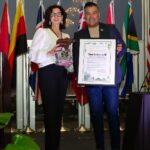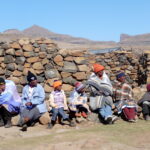A new study covering 39 African countries has found that most people who are aware of climate change believe their own governments should take the lead in addressing it.
Around a third of respondents placed the responsibility on ordinary citizens, while only a small number pointed to historical emitters such as wealthier countries.
The findings come from research led by the Climate Risk Lab at the University of Cape Town (UCT), published in Communications Earth & Environment.
The study revealed that people with more education, lower poverty levels and access to new media are more likely to see historical emitters as responsible for driving climate change.
Dr Nick Simpson, Chief Research Officer at the Climate Risk Lab, who co-led the research with Assistant Professor Talbot Andrews from Cornell University, said the findings were concerning.
He pointed out that those with the fewest resources to cope with climate impacts often had little expectation that their governments would respond effectively.
This is particularly significant given the relatively low political attention climate change receives from parties and voters in many African countries.
Dr Debra Roberts, who received an honorary doctorate from UCT in 2023, said the results show why political leaders and those involved in climate governance will increasingly need to respond to the expectations of citizens who are experiencing the effects of climate change.
Dr Chris Trisos, Director of the Climate Risk Lab, described the research as a strong example of how collaborative partnerships—such as those with Afrobarometer, Cornell University and the University of Reading—can help address Africa’s unique climate and development challenges.
The study also found that people who had better access to resources and information were more likely to support climate action and recognise the role of historical emitters in providing solutions. These individuals also believed in the power of ordinary citizens to contribute meaningfully.
Dr Simpson added: “Interestingly, state professionalism is associated with citizens’ increased willingness to address climate change, their increased demand that the state also addresses the issue, as well as their willingness to hold the government accountable.
“All three are consistent with the virtuous cycle. In regions with high levels of state professionalism, respondents are more likely to say that ordinary citizens can do something to address climate change.”
He said efforts to reduce poverty, improve education and support capable public institutions could help shift expectations of responsibility onto those with greater resources to act.
“Future work is needed to identify the joint effects of climate change literacy, the attribution of responsibility, and how Africans evaluate the action of their governments and historical emitters in addressing or failing to address ongoing climate change and losses and damages escalate,” Dr Simpson said.











